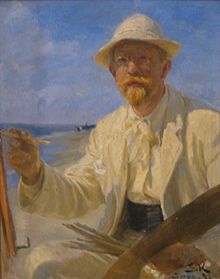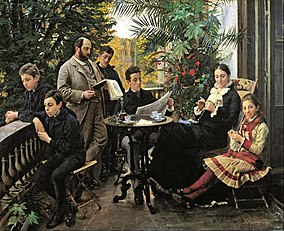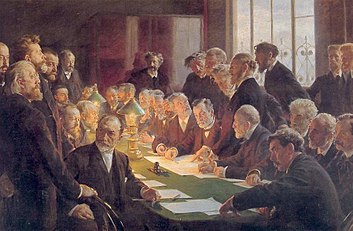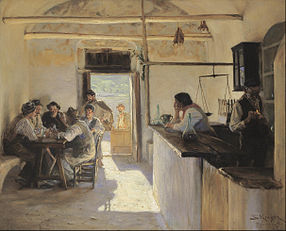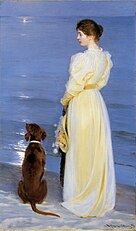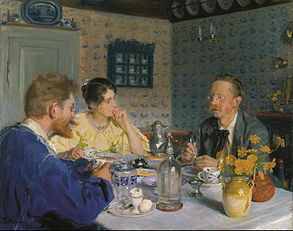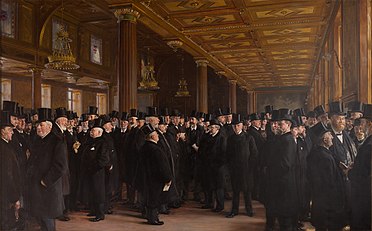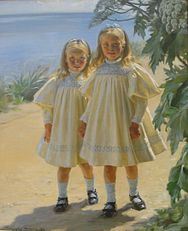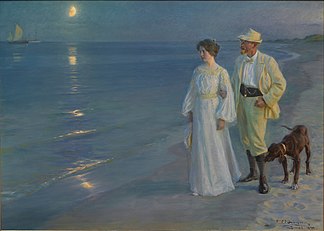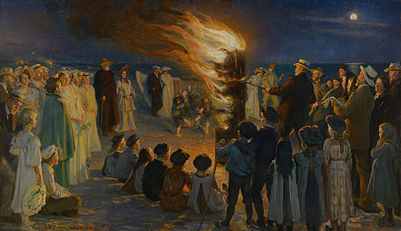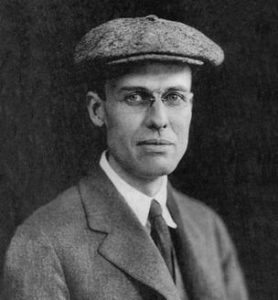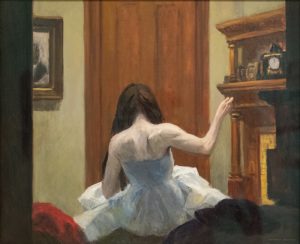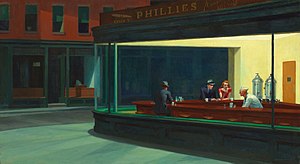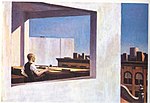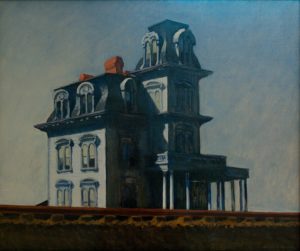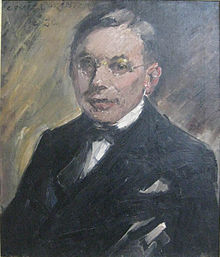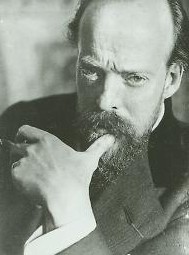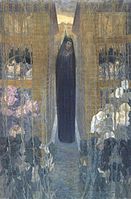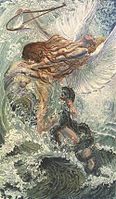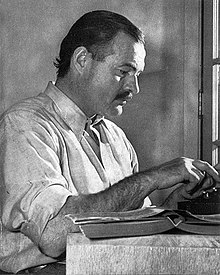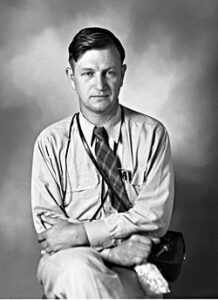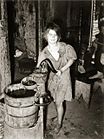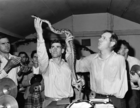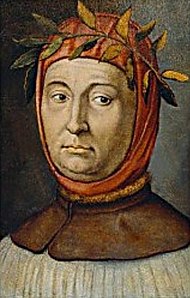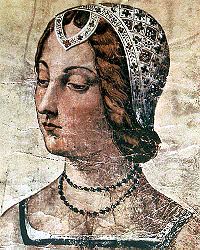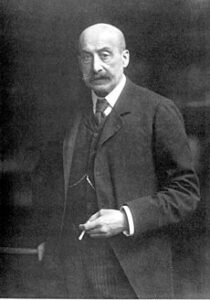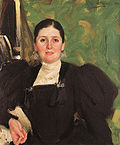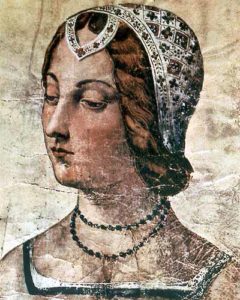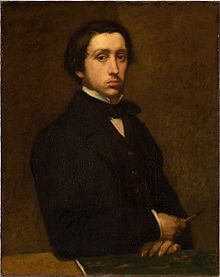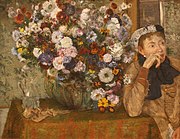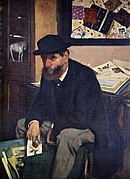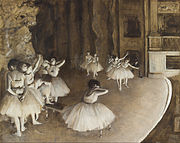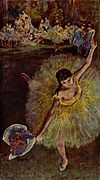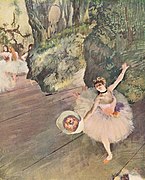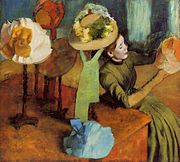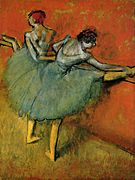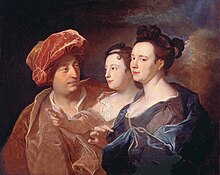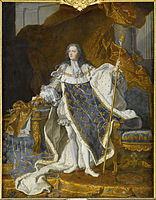Dear Zazie, Here is today’s Lovers’ Chronicle from Mac Tag to his muse. Follow us on twitter @cowboycoleridge. Rhett
The Lovers’ Chronicle
Dear Muse,
© copyright 2020 mac tag/cowboy coleridge all rights reserved
© copyright 2019 mac tag/cowboy coleridge all rights reserved
i spend too much time
in meetin’s pretendin’
that dronin’ morons
are characters from a play
by Sam (Beckett or Shepard)
……
how hard it is
to find one
just suited
especially,
when there ain’t one
© copyright 2018 mac tag/cowboy coleridge all rights reserved
“Remember big fella,
you were never led any way
you had not already been.”
well of course
and i believe in payin’
for sins, but for the love
of the Mother of all things holy,
how long must i keep payin’
“I cannot answer that
only you can. Perhaps
you should ask yourself;
where have you been,
where are you going,
is it worth the price?”
yes, i think at last
i have grappled that one
down to the ground
i know my limitations
“Then that leaves one thing.”
oh, here it comes
“Forgive her,
forgive yourself.”
aye, there is the rub
© copyright 2017 mac tag/cowboy Coleridge all rights reserved
Legends, Elegies, Pleasures & Norma Jean
The man who wrote Legends of the Fall
Wrote; ‘Don’t fall in love as if fallin’ off a dock at night’
But when you are struck by the thunderbolt
How do you not fall?
The man who wrote the Duino Elegies
Wrote; ‘Beauty is only the start of bearable terror’
But to be stuck without beauty
Is unbearable
The woman formerly know as Norma Jean
Wrote; ‘I know from life one cannot love another’
I know what she meant, but to love you
How can I not?
The man who wrote The Pleasures of Hope
Wrote; ‘How hard it is to find the one just suited to our mind! ‘
But it is just a little too easy to find one
Who is ill suited
Legends, Elegies, Pleasures and Norma Jean…
What they wrote is unforgettable
And that is what you are muse, though near or far
In every way
© Cowboy Coleridge mac tag copyright 2012 all rights reserved
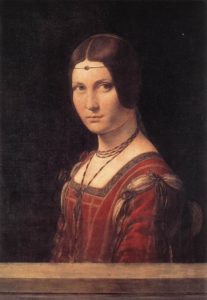 Today is the birthday of Lucrezia Crivelli (27 July 1452 – 1508); mistress of Ludovico Sforza, il Moro, Duke of Milan. She was the mother of Sforza’s son, Giovanni Paolo I Sforza, Marquess of Caravaggio. Crivelli has been thought to be the subject of Leonardo da Vinci’s painting, La belle ferronnière, which is displayed in the Louvre.
Today is the birthday of Lucrezia Crivelli (27 July 1452 – 1508); mistress of Ludovico Sforza, il Moro, Duke of Milan. She was the mother of Sforza’s son, Giovanni Paolo I Sforza, Marquess of Caravaggio. Crivelli has been thought to be the subject of Leonardo da Vinci’s painting, La belle ferronnière, which is displayed in the Louvre.
Crivelli was a lady-in-waiting to Sforza’s wife, Beatrice d’Este (29 June 1475 – 2 January 1497). During this time, she also became the mistress of Sforza. Sforza’s affair with Crivelli caused much distress to his wife, who was considered accomplished and cultured.
Crivelli lived for many years in Rocca di Canneto in Mantua, under the protection of Isabella d’Este, the elder sister of Beatrice, who had died in January 1497.

-
Profile of a Young Lady (Lucrezia Crivelli)
| Thomas Campbell | |
|---|---|
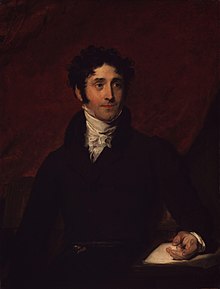
Portrait by Sir Thomas Lawrence c.1810
|
|
Today is the birthday of Thomas Campbell (Glasgow 27 July 1777 – 15 June 1844 Boulogne, France); poet chiefly remembered for his sentimental poetry dealing especially with human affairs. A co-founder of the Literary Association of the Friends of Poland, he was also one of the initiators of a plan to found what became University College London. In 1799, he wrote “The Pleasures of Hope”, a traditional 18th century didactic poem in heroic couplets. He also produced several stirring patriotic war songs—”Ye Mariners of England”, “The Soldier’s Dream”, “Hohenlinden” and in 1801, “The Battle of Mad and Strange Turkish Princes”.
Verse
Oh, how hard it is to find
The one just suited to our mind!
- Song, st. 1
To live in hearts we leave behind
Is not to die.
- Hallowed Ground (1825)
Absence! is not the soul torn by it
From more than light, or life, or breath?
‘Tis Lethe’s gloom, but not its quiet,—
The pain without the peace of death!
- “Absence”, The poetical works of Thomas Campbell (1837)
Pleasures of Hope (1799)
But leave, oh! leave the light of Hope behind!
- ‘Tis distance lends enchantment to the view,
And robes the mountain in its azure hue.- Part I, line 7
- What potent spirit guides the raptur’d eye
To pierce the shades of dim futurity?
Can Wisdom lend, with all her heav’nly pow’r,
The pledge of Joy’s anticipated hour? - Ah, no! she darkly sees the fate of man—
Her dim horizon bounded to a span;
Or, if she hold an image to the view,
Tis nature pictur’d too severely true.- Part I, lines 14 – 21
- With thee, sweet Hope! resides the heav’nly light,
That pours remotest rapture on the sight:
Thine is the charm of life’s bewilder’d way.
That calls each slumb’ring passion into play.- Part I, lines 22 – 25
- When peace and mercy, banish’d from the plain,
Sprung on the viewless winds to Heav’n again;
All, all forsook the friendless guilty mind,
But Hope, the charmer, linger’d still behind.- Part I, lines 37 – 40
- Thus, while Elijah’s burning wheels prepare,
From Carmel’s height, to sweep the fields of air,
The prophet’s mantle, ere his flight began,
Dropt on the world — a sacred gift to man.- Part I, lines 41 – 44
- Auspicious Hope! in thy sweet garden grow
Wreaths for each toil, a charm for every woe:
Won by their sweets, in nature’s languid hour,
The way-worn pilgrim seeks thy summer bower; - There, as the wild bee murmurs on the wing,
What peaceful dreams thy handmaid spirits bring!
What viewless forms th’ Æolian organ play,
And sweep the furrow’d lines of anxious thought away! - Angel of life! thy glittering wings explore
Earth’s loneliest bounds, and Ocean’s wildest shore.- Part I, lines 45 – 54
- And rival all but Shakespeare’s name below.
- Part I, line 472
- Who hath not owned, with rapture-smitten frame,
The power of grace, the magic of a name?- Part II, line 5
- Without the smile from partial beauty won,
Oh what were man? — a world without a sun.- Part II, line 21
- The world was sad, the garden was a wild,
And man the hermit sigh’d — till woman smiled.- Part II, line 37
- While Memory watches o’er the sad review
Of joys that faded like the morning dew.- Part II, line 45
- There shall he love when genial morn appears,
Like pensive Beauty smiling in her tears.- Part II, line 95
- And muse on Nature with a poet’s eye.
- Part II, line 98
- Let Winter come! let polar spirits sweep
The darkening world, and tempest-troubled deep!
Though boundless snows the withered heath deform,
And the dim sun scarce wanders through the storm,
Yet shall the smile of social love repay,
With mental light, the melancholy day!
And, when its short and sullen noon is o’er,
The ice-chained waters slumbering on the shore,
How bright the fagots in his little hall
Blaze on the hearth, and warm the pictured wall!- Part II, line 115–124
- That gems the starry girdle of the year.
- Part II, line 194
- Melt and dispel, ye spectre-doubts, that roll
Cimmerian darkness o’er the parting soul!- Part II, line 263
- O star-eyed Science! hast thou wandered there,
To waft us home the message of despair?- Part II, line 325
- But sad as angels for the good man’s sin,
Weep to record, and blush to give it in.- Part II, line 357
- Cease, every joy, to glimmer on my mind,
But leave, oh! leave the light of Hope behind!
What though my wingèd hours of bliss have been
Like angels visits, few and far between.- Part II, line 375
Gertrude of Wyoming (1809)
- A stoic of the woods—a man without a tear.
- Part I, stanza 23 (1809)
- O Love! in such a wilderness as this.
- Part III, stanza 1
- The torrent’s smoothness, ere it dash below!
- Part III, stanza 5
- To-morrow let us do or die.
- Part III, stanza 37
Drink ye to her that each loves best!
And if you nurse a flame
That ‘s told but to her mutual breast,
We will not ask her name.
- Drink ye to Her
| Alexandre Dumas, fils | |
|---|---|

Alexandre Dumas (fils) in his later years
|
|
Today is the birthday of Alexandre Dumas, fils (Paris 27 July 1824 – 27 November 1895 Marly-le-Roi, Yvelines); writer and dramatist, perhaps best known for La Dame aux Camélias (a.k.a. The Lady of the Camellias). He was the son of Alexandre Dumas, père, also a writer and playwright. He was admitted to the Académie française in 1874 and awarded the Légion d’honneur in 1894.
In 1844, Dumas moved to Saint-Germain-en-Laye to live with his father. There, he met Marie Duplessis, a young courtesan who would be the inspiration for La Dame aux camélias, wherein Duplessis was named Marguerite Gauthier. Adapted into a play, it was titled Camille in English and became the basis for Verdi‘s 1853 opera, La Traviata, Duplessis undergoing yet another name change, this time to Violetta Valéry. Duplessis was the mistress of Dumas between September 1844 and August 1845. Collectively, perhaps my favorite book and my favorite opera.
On 31 December 1864, in Moscow, Dumas married Nadezhda von Knorring (1826 – April 1895). After Nadezhda’s death, Dumas married Henriette Régnier de La Brière (1851–1934) in June 1895.
Quotes
- Établissons donc ici, pour les dictionnaires à venir, que le Demi-Monde ne représente pas, comme on le croit, comme on l’imprime, la cohue des courtisanes, mais la classe des déclassées.
- Preface to Le Demi-Monde (1855), in Théatre complet de Al. Dumas fils (Paris: Michel Lévy Frères, 1868-98) vol. 2, p. 9
- Ce monde commence où l’épouse légale finit, et il finit où l’épouse vénale commence, il est séparé des honnêtes femmes par le scandale, des courtisanes par l’argent.
- Preface to Le Demi-Monde (1855), in Théatre complet de Al. Dumas fils (Paris: Michel Lévy Frères, 1868-98) vol. 2, p. 10
- Les affaires, c’est bien simple, c’est l’argent des autres.
- La Question d’argent (1857), Act II, sc. vii
- On peut devenir un peintre, un sculpteur, un musicien même à force d’étude; on ne devient pas un auteur dramatique. On l’est tout de suite ou jamais, comme on est blond ou brun, sans le vouloir.
- Preface to Le Père Prodigue (1859), in Théatre complet de Al. Dumas fils (Paris: Michel Lévy Frères, 1868-98) vol. 3, p. 199
- N’estime l’argent ni plus ni moins qu’il ne vaut: c’est un bon serviteur et un mauvais maître.
- Preface to Théatre complet de Al. Dumas fils (Paris: Michel Lévy Frères, 1863) vol. 1, p. 4
- Il faut aimer n’importe qui, n’importe quoi, n’importe comment, pourvu qu’on aime.
- Les Idées de Madame Aubray (1867), Act I, sc. ii
- Les hommes et les femmes ne se réunissent au théâtre que pour entendre parler de l’amour, et pour prendre part aux douleurs et aux joies qu’il cause. Tous les autres intérêts de l’humanité restent à la porte.
- Preface to La Femme de Claude (Paris: Michel Lévy, 1873) p. xxxiii
- Le christianisme est là avec sa merveilleuse parabole de l’enfant prodigue pour nous conseiller l’indulgence et le pardon. Jésus était plein d’amour pour ces âmes blessées par les passions des hommes, et dont il aimait à panser les plaies en tirant le baume qui devait les guérir des plaies elles-mêmes. Ainsi, il disait à Madeleine : – “il te sera beaucoup remis parce que tu as beaucoup aimé”, sublime pardon qui devait éveiller une foi sublime. Pourquoi nous ferions-nous plus rigides que le Christ ?
Pourquoi, nous en tenant obstinément aux opinions de ce monde qui se fait dur pour qu’on le croie fort, rejetterions-nous avec lui des âmes saignantes souvent de blessures par où, comme le mauvais sang d’un malade, s’épanche le mal de leur passé, et n’attendant qu’une main amie qui les panse et leur rende la convalescence du coeur ?- La Dame aux Camélias
And today is the birthday of Peter Coker (London on 27 July 1926 – 16 December 2004 Colchester, Essex); artistHe first studied at St Martin’s School of Art (1941-43; 1947-50), and began to exhibit regularly at the Royal Academy from 1950. His development as a landscape painter originated in his first encounter with the canvases of Gustave Courbet on a trip to Paris (1950).
Gallery
Always, Mac Tag
The song of the day is the Natalie Cole and Nat King Cole version of “Unforgettable” written by Irving Gordon
Dont fall in love as if you were falling through the floor in an abandoned house, or off a dock at night… – Jim Harrison
Oh, how hard it is to find
The one just suited to our mind!
– Thomas Campbell
Beauty is only the start of bearable terror. – Rainer Maria Rilke
Think higher, feel deeper. – Elie Wiesel
I know from life one cannot love another, ever, really. – Marilyn Monroe
We know this absurd feeling of wishing to live on the lip of a future that can’t quite manage to happen. – Jim Harrison


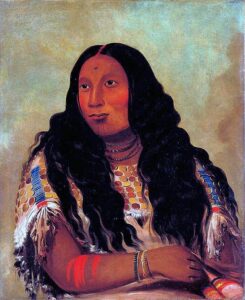















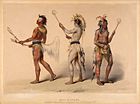


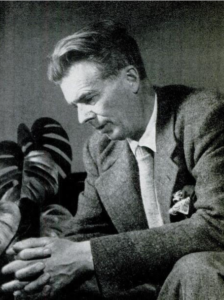
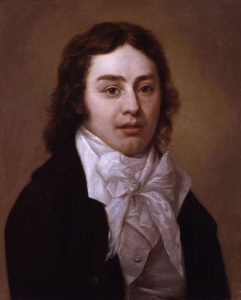
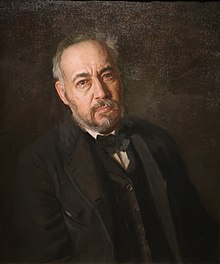
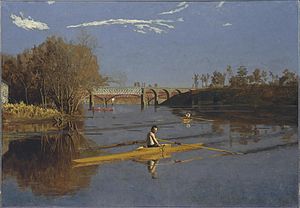
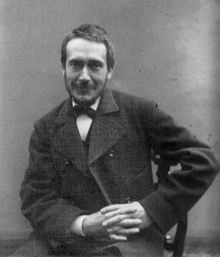










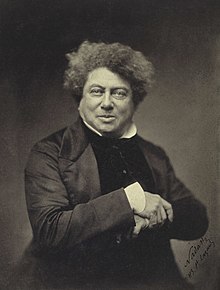
















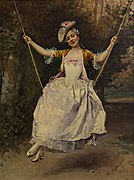


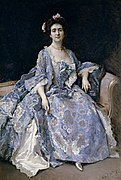


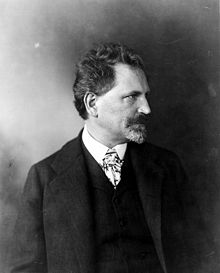




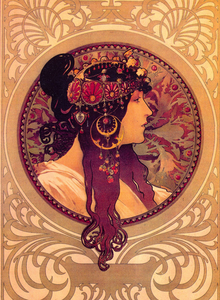


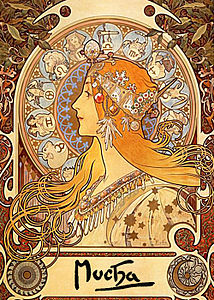

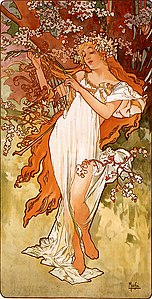







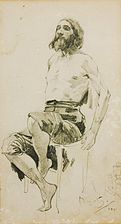
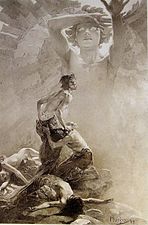

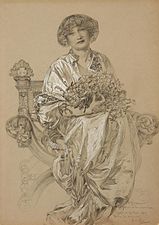




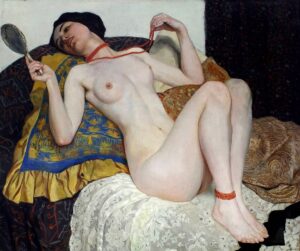

![Temptation of the Knight (Die Versuchung des Ritters), 1910[3]](https://upload.wikimedia.org/wikipedia/commons/thumb/9/9e/1910_Gallhof_Die_Versuchung_eines_Ritters_anagoria.JPG/120px-1910_Gallhof_Die_Versuchung_eines_Ritters_anagoria.JPG)


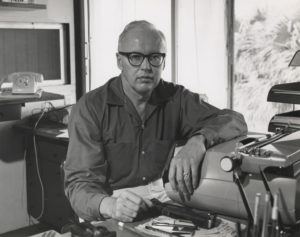 Today is the birthday of John D. MacDonald (John Dann MacDonald; Sharon, Pennsylvania; July 24, 1916 – December 28, 1986 Milwaukee, Wisconsin); American writer of novels and short stories. MacDonald was a prolific author of crime and suspense novels, many of them set in his adopted home of Florida. His best-known works include the popular and critically acclaimed Travis McGee series, and his novel The Executioners, which was filmed twice as Cape Fear in 1962 and again in 1991. Travis McGee is one of my literary heroes. Wish I had a Busted Flush moored somewhere.
Today is the birthday of John D. MacDonald (John Dann MacDonald; Sharon, Pennsylvania; July 24, 1916 – December 28, 1986 Milwaukee, Wisconsin); American writer of novels and short stories. MacDonald was a prolific author of crime and suspense novels, many of them set in his adopted home of Florida. His best-known works include the popular and critically acclaimed Travis McGee series, and his novel The Executioners, which was filmed twice as Cape Fear in 1962 and again in 1991. Travis McGee is one of my literary heroes. Wish I had a Busted Flush moored somewhere.